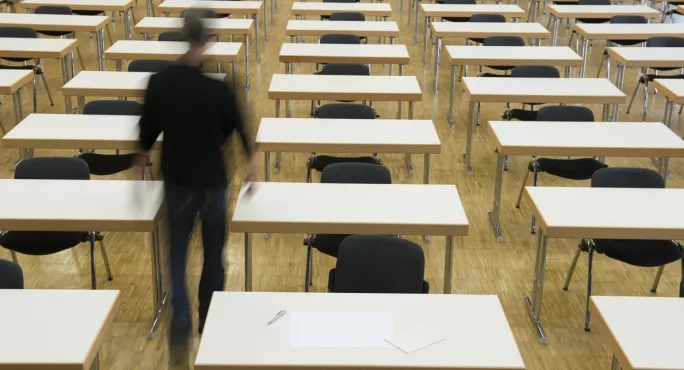GCSEs 2021: Teacher grades saw rise in appeals

There was a sharp increase in the number of appeals against GCSE and A-level results in 2021 after students were allowed to challenge the academic judgement involved in teacher assessed grades used last year, new data published today shows.
Figures published by Ofqual show there were 9,225 appeals against GCSE grades in 2020-21, of which 40 per cent were upheld.
And at A level, 31 per cent of the 6,865 appeals were upheld.
Data shows that most of these appeals were students objecting to the judgement of a school in arriving at a grade or the evidence they had selected in order to determine it.
- Long read: How teacher grades took over
- GCSEs 2021: Teacher assessed grades get the green light
- 2021 exams: Autumn grades boosted by summer ‘generosity’
This is a sharp increase on the number of appeals in previous years but Ofqual said it was a result of the different appeals process used in 2021 and the fact that, in pre-pandemic years when exams were sat, most grade challenges happened through a marking review rather than an appeal.
Why were students appealing?
Teacher assessed grades were used for the 2021 exam series after the prime minister, Boris Johnson, announced the cancellation of exams at the beginning of the year.
A new appeals process was used, which meant that the 2021 summer grades could be appealed against for procedural errors, administrative errors, or on grounds that either the selection of evidence teachers used for a grade, or the grade that they decided based on the evidence reflected “an unreasonable academic judgement”.
Ofqual’s figures show that the most common reason for an appeal on GCSE grades was “unreasonable exercise of academic judgement: determination of grade”, with 4,985 appeals received for this reason.
The second most common reason for appeal at GCSE was over the selection or range of evidence a school used to produce the grade. There were almost 3,500 appeals on these grounds.
The third most common reason was over administrative or procedural errors.
However, Ofqual says the figure does not include occasions where the school was challenged but did not find an administrative or procedural error. This means the number of grades challenged because of this are undercounted in today’s data.
How many grades changed as a result of appeals
In total 17,610 grades at GCSE, AS and A level were challenged - 0.3 per cent of all grades certified, according to the Ofqual’s data.
Of these, 6,200 certified for GCSEs, AS and A levels were changed (0.1 per cent of the 6.1 million grades certified).
One appeal may have covered several grades. The number of appeals received for GCSEs, AS and A levels in 2020-21 was 16,090. Of these, 5,770 (36 per cent of appeals received) were upheld,
The total figure for 2020-21 appeals at GCSE was 9,225, up from 2,270 appeals in 2019-20 and 775 in 2018-19.
At A level, there were 6,865 appeals in 2020-21. In 2019-20, the figure had been 1,355 and in 2018-19, it was 480.
Ofqual said this was because a different appeals process was used and it warned against making direct comparisons between years.
In 2020, the first year in which exams were cancelled because of Covid, a different appeals process was in place.
That cohort of students were told they “could not appeal because they disagree with their school’s or college’s professional judgement of the grade the student would most likely have achieved if exams had taken place”.
In pre-pandemic years, Ofqual said: “When students take exams set and marked by awarding organisations, most concerns about grades awarded are considered through reviews of marking, not appeals.
“Reviews of marking were not available in summer 2020 and summer 2021 because students did not take exams set and marked by awarding organisations.”
You need a Tes subscription to read this article
Subscribe now to read this article and get other subscriber-only content:
- Unlimited access to all Tes magazine content
- Exclusive subscriber-only stories
- Award-winning email newsletters
Already a subscriber? Log in
You need a subscription to read this article
Subscribe now to read this article and get other subscriber-only content, including:
- Unlimited access to all Tes magazine content
- Exclusive subscriber-only stories
- Award-winning email newsletters
topics in this article



